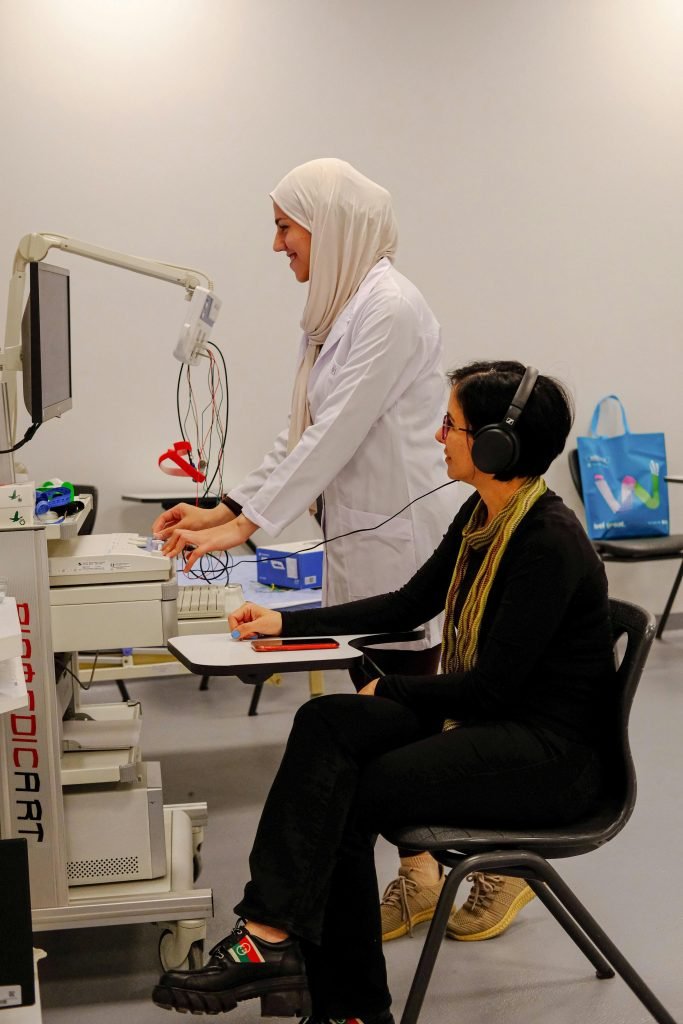Have you been struggling to afford your arthritis medications? Prescription drug prices continue to rise, making it difficult for many people to access the medications they need. However, there’s now a solution – the FlatFee Pharmacy Program. By subscribing to this program for as low as $19.95 per month, you can gain access to over 800 of the most prescribed medications for free! This includes both acute and chronic medications for conditions like arthritis. Imagine never having to worry about the cost of your medications again. Subscribe today and experience the game-changing benefits of our FlatFee Pharmacy Program.

Nonsteroidal Anti-Inflammatory Drugs (NSAIDs)
Nonsteroidal Anti-Inflammatory Drugs, commonly known as NSAIDs, are a class of medications that are commonly prescribed for arthritis. They work by reducing inflammation and relieving pain. NSAIDs are available over-the-counter or can be prescribed by your doctor. The three most commonly used NSAIDs for arthritis are Ibuprofen, Naproxen, and Celecoxib.
Ibuprofen
Ibuprofen is a widely used NSAID that is available over-the-counter as well as in prescription strength. It is effective in relieving pain and reducing inflammation associated with arthritis. Ibuprofen can be taken as a pill or applied in a topical gel form for localized pain relief. It is typically taken with food to minimize the risk of stomach irritation.
Naproxen
Naproxen is another NSAID that is commonly used to manage arthritis symptoms. It is available both over-the-counter and in prescription strength. Naproxen provides relief from pain and inflammation and can be taken as a pill. It is important to follow the recommended dosage and consult your doctor if you experience any side effects.
Celecoxib
Celecoxib is a prescription-only NSAID that is frequently prescribed for arthritis. It is known for its strong anti-inflammatory properties and can provide long-lasting pain relief. Celecoxib is available in different strengths and should be taken as directed by your healthcare provider. It is important to note that Celecoxib should be used cautiously in patients with a history of cardiovascular disease or certain other medical conditions.
Corticosteroids
Corticosteroids are another class of medications commonly used to treat arthritis. They work by reducing inflammation and suppressing the immune system. Corticosteroids can be taken orally, injected directly into the affected joint, or applied topically, depending on the severity and location of the arthritis symptoms. The three common corticosteroids used for arthritis are Prednisone, Methylprednisolone, and Dexamethasone.
Prednisone
Prednisone is an oral corticosteroid that is often prescribed for arthritis flare-ups. It is a powerful anti-inflammatory medication that can provide quick relief from pain and inflammation. Prednisone should be taken exactly as prescribed by your doctor, and the dosage may need to be tapered gradually to avoid withdrawal symptoms.
Methylprednisolone
Methylprednisolone is another corticosteroid that can be taken orally or administered through injection. It is commonly used to treat moderate to severe arthritis symptoms. Methylprednisolone works by suppressing the immune system and reducing inflammation. It is important to follow your doctor’s instructions regarding the dosage and duration of treatment.
Dexamethasone
Dexamethasone is a corticosteroid that can be taken orally, injected, or applied topically for arthritis treatment. It is known for its potent anti-inflammatory effects and is often used for short-term management of arthritis symptoms. Dexamethasone should be used as directed by your healthcare provider, and long-term use should be avoided due to potential side effects.
Disease-Modifying Antirheumatic Drugs (DMARDs)
Disease-Modifying Antirheumatic Drugs (DMARDs) are a class of medications that are used to slow down the progression of rheumatic diseases, including different forms of arthritis. These medications work by modifying the underlying disease process rather than just treating the symptoms. Some commonly prescribed DMARDs for arthritis include Methotrexate, Leflunomide, and Sulfasalazine.
Methotrexate
Methotrexate is one of the most commonly prescribed DMARDs for arthritis. It works by suppressing the immune system and reducing inflammation. Methotrexate can be taken orally or administered through injection. It is often used in combination with other DMARDs to maximize its effectiveness. Regular monitoring of blood tests is important while on Methotrexate therapy.
Leflunomide
Leflunomide is another DMARD that is used to treat arthritis. It works by inhibiting certain enzymes involved in the immune response, thereby reducing inflammation in the joints. Leflunomide is typically taken orally and may take several weeks to show its full effect. Regular monitoring of liver function tests is important while on Leflunomide therapy.
Sulfasalazine
Sulfasalazine is a DMARD that is commonly prescribed for arthritis, particularly for rheumatoid arthritis. It works by reducing inflammation in the joints and slowing down the disease progression. Sulfasalazine is usually taken orally and may take some time to show its effectiveness. Regular monitoring of blood counts and liver function tests is important while on Sulfasalazine therapy.
Biologic Response Modifiers
Biologic Response Modifiers, also known as biologics, are a type of medication that targets specific components of the immune system involved in the inflammation process. They are typically prescribed for moderate to severe rheumatoid arthritis when other traditional DMARDs have not been effective. Some commonly prescribed biologics for arthritis include Adalimumab, Etanercept, and Infliximab.
Adalimumab
Adalimumab is a biologic medication that is administered through injection. It works by inhibiting a protein called tumor necrosis factor (TNF) alpha, which is involved in the inflammation process. Adalimumab can provide significant relief from arthritis symptoms and slow down the progression of joint damage. Regular monitoring and follow-up with your healthcare provider are important while on Adalimumab therapy.
Etanercept
Etanercept is another biologic medication that targets TNF-alpha. It can be administered through injection and has shown effectiveness in reducing inflammation and relieving arthritis symptoms. Regular monitoring of your condition and any potential side effects is important while on Etanercept therapy.
Infliximab
Infliximab is a biologic medication that is given through intravenous (IV) infusion. It works by neutralizing TNF-alpha and reducing inflammation in the joints. Infliximab is often used when other biologics or DMARDs have not provided sufficient relief. Regular monitoring and follow-up with your healthcare provider are essential while on Infliximab therapy.

Janus Kinase (JAK) Inhibitors
Janus Kinase (JAK) Inhibitors are a newer class of medications that target specific enzymes involved in the immune system’s inflammatory response. They can be prescribed for rheumatoid arthritis when other treatments have not been effective. Some commonly prescribed JAK inhibitors for arthritis include Tofacitinib, Baricitinib, and Upadacitinib.
Tofacitinib
Tofacitinib is a JAK inhibitor that is taken orally. It works by blocking the activity of JAK enzymes, which reduces inflammation in the joints. Tofacitinib has shown effectiveness in improving arthritis symptoms and slowing down disease progression. Regular monitoring of blood counts and liver function tests is important while on Tofacitinib therapy.
Baricitinib
Baricitinib is another JAK inhibitor that is taken orally. It works by inhibiting JAK enzymes, which play a role in the inflammation process. Baricitinib has been shown to provide significant relief from arthritis symptoms and improve overall function. Regular monitoring of blood counts and lipid levels is important while on Baricitinib therapy.
Upadacitinib
Upadacitinib is a JAK inhibitor that is taken orally. It works by selectively inhibiting JAK enzymes, thereby reducing inflammation in the joints. Upadacitinib has shown effectiveness in improving arthritis symptoms and inhibiting disease progression. Regular monitoring of blood counts, liver function tests, and lipid levels is important while on Upadacitinib therapy.
Topical Pain Relievers
Topical pain relievers are medications that are applied directly to the skin on the affected area. They can provide localized relief from pain and inflammation. Some commonly used topical pain relievers for arthritis include Diclofenac gel and Capsaicin cream.
Diclofenac gel
Diclofenac gel is a topical medication that contains the NSAID Diclofenac. It can be applied directly to the skin over the affected joint or area. Diclofenac gel works by reducing inflammation and relieving pain. It is important to follow the instructions for proper application and avoid using it on broken or damaged skin.
Capsaicin cream
Capsaicin cream is a topical medication that contains an active ingredient derived from chili peppers. It works by desensitizing the nerves in the skin, which can reduce pain and inflammation. Capsaicin cream should be applied to the affected area as directed, taking care to avoid contact with eyes and mucous membranes.

Opioids
Opioids are a class of strong pain medications that are used for severe arthritis pain that does not respond to other treatments. They work by binding to opioid receptors in the brain and spinal cord, reducing the perception of pain. Opioids should only be used under the supervision of a healthcare professional and for short-term, as they can be highly addictive. Some commonly prescribed opioids for arthritis include Tramadol, Codeine, and Hydrocodone.
Tramadol
Tramadol is an opioid medication that is often prescribed for moderate to severe arthritis pain. It works by binding to opioid receptors and inhibiting the reuptake of certain neurotransmitters involved in pain perception. Tramadol can be taken orally and should be used as directed by your doctor. It is important to note that Tramadol can cause drowsiness and other side effects, so caution should be exercised while taking this medication.
Codeine
Codeine is another opioid medication that is sometimes prescribed for arthritis pain. It acts on the central nervous system to reduce pain and can be taken orally. Codeine should be used with caution, as it can cause drowsiness, constipation, and other side effects. It is important to follow your doctor’s instructions regarding the dosage and duration of use.
Hydrocodone
Hydrocodone is a potent opioid medication that is used for severe arthritis pain. It is generally prescribed when other treatments have not provided sufficient relief. Hydrocodone should be used under close supervision and only for short-term use, as it can be highly addictive. Regular monitoring for side effects and dependency is important while taking Hydrocodone.
Nonsteroidal Anti-Inflammatory Drugs (NSAIDs) with Proton Pump Inhibitors (PPIs)
Nonsteroidal Anti-Inflammatory Drugs (NSAIDs) can sometimes cause stomach irritation or ulcers. To minimize this risk, NSAIDs can be taken along with Proton Pump Inhibitors (PPIs). PPIs are medications that reduce the production of stomach acid, thereby protecting the lining of the stomach. One combination of NSAID and PPI that is commonly prescribed for arthritis is Naproxen + esomeprazole.
Naproxen + esomeprazole
Naproxen is an NSAID that is often prescribed for arthritis pain and inflammation. When taken with esomeprazole, a PPI, it helps protect the stomach lining from potential irritation. This combination medication provides the benefits of both pain relief and stomach protection. It should be taken as directed by your healthcare provider, and any potential side effects should be monitored.
Analgesics
Analgesics are medications that are used primarily for pain relief. They are commonly prescribed for arthritis when other treatments are not effective or suitable. Some commonly prescribed analgesics for arthritis include Acetaminophen and Tramadol.
Acetaminophen
Acetaminophen, also known as paracetamol, is an analgesic medication that is commonly used for mild to moderate arthritis pain. It works by blocking certain pain signals in the brain. Acetaminophen is available over-the-counter and in prescription strength. It is important to follow the recommended dosage and avoid exceeding the maximum daily limit to prevent liver damage.
Tramadol
As mentioned earlier, Tramadol is an opioid medication that can also be classified as an analgesic. It is often prescribed for moderate to severe arthritis pain when other treatments have not been effective. Tramadol should be used under the supervision of a healthcare professional and for short-term use, as it can be addictive. Regular monitoring for side effects and dependency is important while taking Tramadol.
Physical Therapy and Assistive Devices
In addition to medications, physical therapy and the use of assistive devices play an important role in managing arthritis symptoms and improving quality of life. Physical therapy can help improve joint flexibility, strength, and range of motion. It may include exercises, hot/cold therapy, and the use of assistive devices.
Exercises
Physical therapists can recommend specific exercises tailored to individual needs and limitations. These exercises may focus on strengthening the muscles surrounding the affected joints, improving flexibility, and maintaining overall physical function. It is important to follow the guidance of a trained professional to avoid injury and maximize the benefits of exercise.
Hot/Cold Therapy
Hot and cold therapy can provide relief from arthritis pain and inflammation. Applying heat to the affected joints can help relax muscles and improve blood circulation, while cold therapy can numb the area and reduce swelling. Patients can use hot packs, cold packs, or take warm baths as directed by their healthcare provider or physical therapist.
Assistive Devices
Assistive devices can help individuals with arthritis maintain independence and perform daily activities with reduced pain and strain on their joints. These devices may include walking aids, such as canes or walkers, splints or braces to provide support to the joints, and ergonomic tools designed to reduce joint stress during activities like cooking or writing. Occupational therapists can assess individual needs and recommend suitable assistive devices.
In conclusion, there are various prescription drugs and treatment options available for managing arthritis symptoms. Nonsteroidal Anti-Inflammatory Drugs (NSAIDs), corticosteroids, Disease-Modifying Antirheumatic Drugs (DMARDs), biologics, Janus Kinase (JAK) inhibitors, topical pain relievers, opioids, NSAIDs with Proton Pump Inhibitors (PPIs), and analgesics can provide relief from pain and inflammation. Physical therapy and the use of assistive devices can aid in improving joint function and maintaining independence. It is important to consult with a healthcare provider to determine the most suitable treatment approach based on individual needs and medical history.



